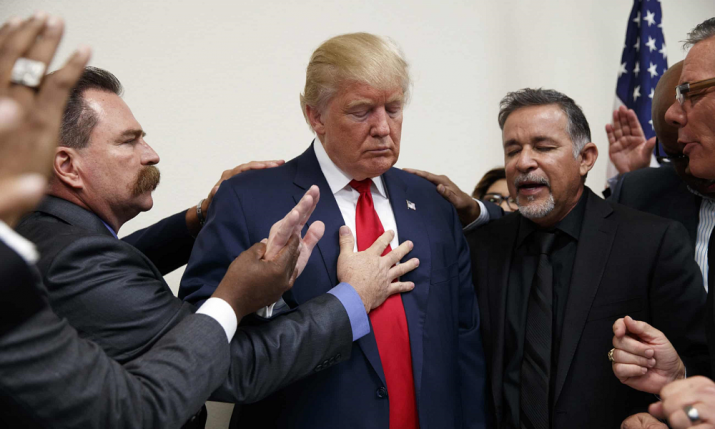FEATURES|THEMES|Commentary
Buddhistdoor View: The Shadow Sides of Secular and Religious Ethics—A Case for Dialogue
 From edhec.edu
From edhec.eduFor millennia, institutions and leaders have attempted to legitimize themselves by claiming fidelity to religious values. In many societies, ethics were seen as unstable unless they were rooted in something transcendent. Humanism, secularism, and the scientific revolution, while not completely displacing religion, did open up new moral outlooks not dependent on religious presuppositions. Then the world shuddered through two World Wars into modernity, before settling on a “global community” based on a roadmap toward progress. This secular discourse invoked an almost religious hope for the fruits of global justice to extend to women, developing economies, and the environment. This vision endured as an increasing number of people in Europe and postcolonial countries saw religion as more of a cultural inheritance than a shaper of social values.
Of course, there are caveats to this narrative of modernity. People, diverse as they are, do not always agree universally on what constitutes flourishing or “the Good.” Progress is not an arrow heading in a single direction, nor is there a single standard, even in the West. More pertinently to our concern, religion has made a powerful comeback in current affairs, at times manifesting in social or cultural backlashes. Why?
An otherwise excellent essay by Massimo Pigliucci, which highlights the role of ethics in discussing human nature, overlooks the fact that leaders and thinkers in the same religion can disagree vigorously on exegesis and interpretation, and therefore what constitutes an ethical life. He writes: “Someone who holds a Judeo-Christian-Islamic view of human nature is naturally going to worship God and follow the guidance of religious commandments.” (Project Syndicate) But one paragraph later he quotes a survey that Trump’s presidency is the least ethical in American history. What should we make of this seeming paradox between Pigliucci’s ethical idea of “worshipping God and following the commandments” and the idea that the Trump presidency is unethical?
The fact remains that Trump’s nomination and presidency was supported by some of America’s most prominent evangelical leaders. These Protestant and Catholic kingmakers saw a Republican presidency as necessary for the nomination of a Supreme Court member who would tilt American law in a conservative Christian direction long after a four- or eight-year presidency (Brett Kavanaugh was eventually nominated and controversially confirmed). Some evangelicals even saw Trump’s election as a miracle.
It would be easy to lambast opposing sides as bad or deluded. However, we have a unique opportunity to explore the tension between not just religious and secular ethics, but the often-fractious tension within religious communities about what “religious ethics” means. For example, it must be acknowledged that large numbers of Christians across the US and the world do not agree with Trump or his evangelical supporters.
To build on our American example, many creationists, fundamentalists, and Dominionists see the world as the stage for prophecy and Jesus’ second coming—hence a suspicion on climate change science and a hawkish stance on foreign policy. In contrast, theologians and politicians in the mold of the New England Puritans and Pope Francis see the world as an embryonic Kingdom of God requiring stewardship and communal peacemaking.
 Pastors from Nevada pray with Donald Trump during a visit to Las Vegas in October 2016. From theguardian.com
Pastors from Nevada pray with Donald Trump during a visit to Las Vegas in October 2016. From theguardian.comThere has also been a lively debate about the ethical nature of Buddhism, not just at a personal level but also in the domain of the common good. Buddhism is an inherently ethical religion, but attempts to “box” it into Western ethical categories such as virtue ethics or utilitarianism have not been productive or accurate. Like Christianity, Buddhism has diverse “streams” of ethical action informed by different visions.
As it stands, religious ideology and secularism have often been engaged in a push-pull relationship, each reacting to the other depending on which is advancing and which one is retreating. As Karen Armstrong notes in an excerpt from her book Fields of Blood: Religion and the History of Violence, “. . . secularism did not so much displace religion as create new religious enthusiasms. So ingrained is our desire for ultimate meaning that our secular institutions, most especially the nation-state, almost immediately acquired a religious aura, though they have been less adept than the ancient mythologies at helping people face up to the grimmer realities of human existence for which there are no easy answers.” Furthermore, religious impulses, when sidelined, can come back swinging with significant leverage and a vengeful face. (Tricycle)
Yet a total repudiation of humanism and secularism would be destructive. If secularism should accept its “religious shadow side,” Buddhist leaders and thinkers should accept their “political shadow side:” that contemporary Buddhists in the East and in the West can no longer assume that the Buddhism they practice is apolitical. Indeed, political Buddhism “was always thus.” Buddhism can emphasize meditation and emptiness, or action and compassion. Buddhist politics can be reconfigured endlessly. It can be patrician and support values espoused by the state. It can also be “anti-establishment” in the mold of Bhikkhu Bodhi and Joan Halifax, whose Buddhist activism in the Trump era has fed an impressive expansion of literature about Buddhist political engagement.
As Buddhist author and activist Robertson Work wrote in a Facebook post, “What is required of Buddhism is integral compassion—adding the collective realms of culture and policies to the traditional realms of individual understanding and behavior. Cultures and policies are needed that relieve the suffering of all beings everywhere.” The answer, perhaps, lies in an integrative approach that allows room for religious visions and secular political thought to work together. Of course, both sides need to dialogue in good faith, without a desire to undermine the other. The zero-sum game being played in many places around the world shows the harm that can come to be when dishonesty and bad faith replaces authenticity.
Since dualities are all illusory—samsara and Nirvana, religiosity and secularism, individual and collective—then theory and action are also inseparable. Whatever we think to be the most wise and compassionate course of action must be, as the expression indicates, acted on.
See more
Human Nature and the Ethical Life (Project Syndicate)
Donald Trump presidency ‘most unethical in modern history’, report finds (Independent)
The Myth of Religious Violence (Tricycle)
The chosen one? The new film that claims Trump's election was an act of God (The Guardian)
Related features from Buddhistdoor Global
Creating a Compassionate Civilization: An Interview with Robertson Work
Dialogue Between Buddhism and Christianity is More Urgent Than Ever
Buddhistdoor View—Self-Sacrificing Patricians: Buddhism’s Moral Message to the Powerful and Privileged














